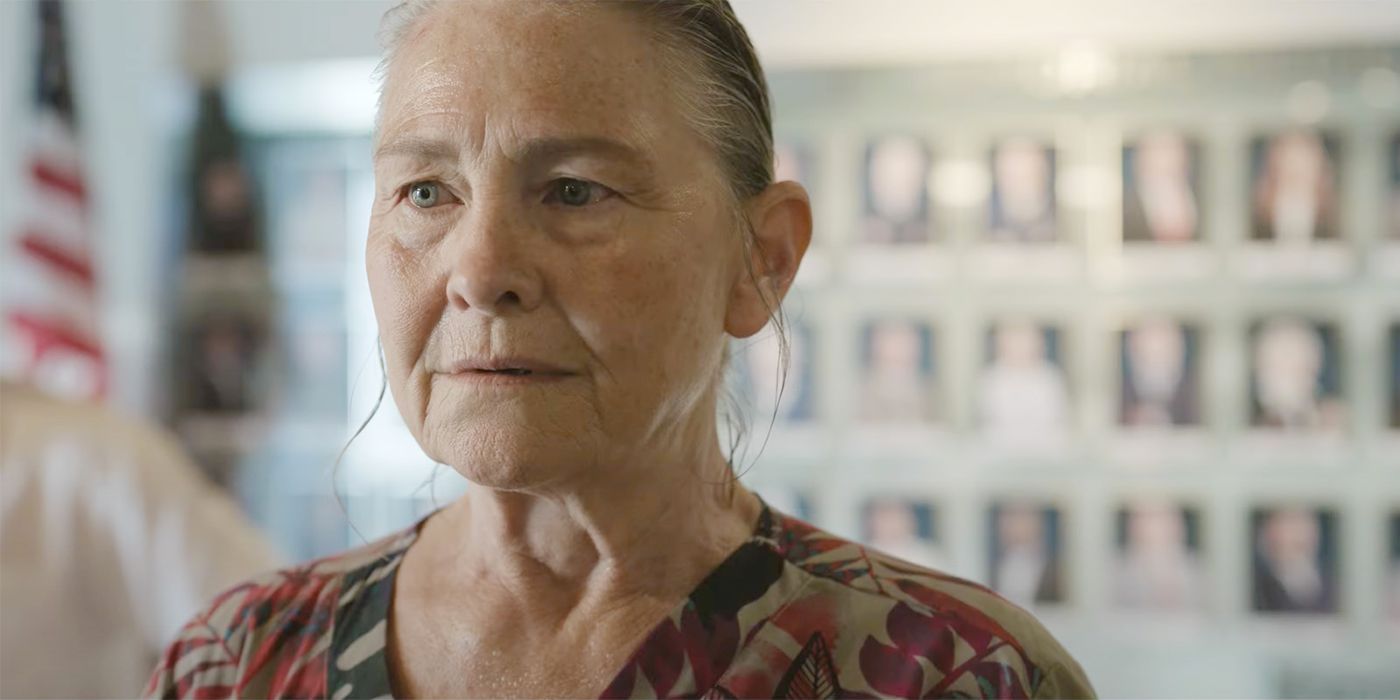Five Days at Memorial is a limited series with a heavy burden. It sets out to dramatize and shed light on the devastating events that took place at Memorial Medical Center in the days following Hurricane Katrina in 2005. Academy Award winner John Ridley (American Crime, Let It Fall: Los Angeles 1982-1992) and Emmy winner Carlton Cuse (Lost, Bates Motel) adapted journalist Sheri Fink's nonfiction novel Five Days at Memorial: Life and Death in a Storm-Ravaged Hospital, telling a story soaked with enduring tragedy, a complex mix of guilt and blame, and widespread systemic failure in U.S. disaster relief.
Ridley's knack for examining history through a critical lens and Cuse's skill for building tension through the human experience both lend themselves naturally to this project, allowing the duo to craft a very nerve-wracking story that takes on a variety of conflicting points of view. What happened to the people of New Orleans following Hurricane Katrina illuminated the flaws in a system in which functionality was a mere facade, as the measures that were supposed to help in such an event broke down at every single level. The duo is tasked with paying respect to the people who lived through such a tragedy and bringing it to television as a limited drama series in a way that honors those people and engages the audience.
By mixing actual news footage captured at the time, Five Days at Memorial plays a little like a dramatized documentary as we jump between the days immediately following the hurricane, as well as the months and years afterward as investigators try to figure out what lead to the deaths of 45 people in the care of the hospital.
While Five Days at Memorial is very much an ensemble series, there are a handful of stand-out performances among the cast. Vera Farmiga delivers an Emmy-worthy performance as Dr. Anna Pou, effortlessly taking the physician through the full gamut of human emotion both during and after the crisis. Arguably the individual at the hospital shouldering the majority of the blame for those deaths, Farmiga's Pou is as sympathetic as she is reprehensible. Throughout the first five episodes, Farmiga shows the slow breakdown of the soul that led Pou to make the horrific decision to end the lives of patients the hospital believed could not be evacuated. She also expertly navigates the conflicting emotions of the aftermath of that choice and her personal privilege in the final three episodes.
Cherry Jones knocks it out of the park as she takes on the role of Susan Mulderick, the hospital employee given the unlucky mantle of being the incident coordinator during the disaster. Jones' Mulderick is operating off of a bare-bones emergency plan with no actionable solutions and absolutely zero support from the very systems that are supposed to prevent a loss of life in a crisis. While no one but the family members of those lost at Memorial can excuse the actions taken by the hospital staff, Five Days at Memorial insists that the audience examine exactly why Jones and Farmiga's characters believed it was their only option.
Cuse and Ridley do an excellent job of showing the infuriating circumstances that the hospital staff at Memorial were in. From the complete lack of comprehensive disaster protocols, all the way up to the utter failure of the federal government to act quickly enough to save its own people, the guilt for what happened at Memorial is spread over layers upon layers of power and privilege. From the first episode, the viewer can feel a sense of foreboding hanging over both the hospital staff and the citizens of New Orleans, as well as the heartbreak of realizing that none of these people were remotely prepared for what they were about to face.
The series sets out to explore systemic failure, and it does so through the lens of several concepts that are achingly relevant in today's world. Five Days at Memorial is drenched in themes of racial bias, sexism, fatphobia, morality, responsibility, consent, agency, and accountability. Each episode is a complicated snapshot of humanity and all the intricacies of the human condition. Moments of desperation and desolation are expertly interspersed with scenes that showcase the best of humanity. The triumph of saving a life is juxtaposed with the anguish of watching someone suffer, and the quiet intimacy of time spent with a loved one stands in stark contrast to the fear and frustration of realizing no one is coming to save you.
It's arguably in our nature to get wrapped up in your own bubble and convince yourself that your experiences are, at least to an extent, universal. However, Five Days at Memorial is a prime example of how every person's experience is uniquely shaped by an endless variety of stimuli. When a person is pushed to the limits of their mind and body, the ways we react are inherently unpredictable. The series posits that, by and large, most individuals face such events with the best of intentions, and the discrepancies between one person's morality and another often appear negligible — until they aren't.
Five Days at Memorial is an important but extremely frustrating watch, I suspect by design. Bouncing around to various points of view — while necessary for giving each perspective the appropriate weight — creates a dissonance for the viewer where each person's story feels somewhat incomplete. With Pou in particular, we don't spend enough time in her point of view and her actions are largely touched on by other characters, rather than shown directly. Early on the series sets up certain plot points that don't end up going anywhere. While those details are likely there to reflect reality, when portrayed in a narrative, the audience is left expecting resolutions that never happen.
This is not a feel-good series meant to offer a resolution to a national tragedy, but rather a grim and glaring light shining on how the complete breakdown of the U.S. government and the systems therein did irreparable damage by prioritizing money and public image over people. When those external forces that are supposed to provide support and sanctuary during such a crisis have proven day after day that they are not coming to help, how do you determine what is humane based on the knowledge that you have? And how are you meant to survive when every system meant to help you fails? Where does the blame lie when almost everyone is responsible to varying degrees?
By the end of the series, you'll be filled with outright disappointment and anger over the events that took place during Hurricane Katrina. When those with the power to affect the masses do not use it for good, the individual is forced into the impossible. Five Days at Memorial urges you to put yourself in the shoes of the survivors and victims. And it demands that we examine the systems that are meant to serve us in a crisis so that something like this never happens again.
Rating: B+
Five Days at Memorial will air three episodes on August 12, with the remainder of the limited series rolling out weekly on Apple TV+.



